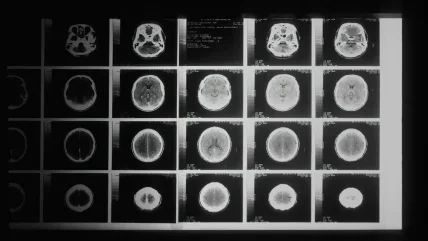
EMVision Medical Devices has shared positive interim results of its neurodiagnostic artificial intelligence (AI) algorithms in the pre-validation trial for diagnosing suspected haemorrhagic or ischaemic strokes.
The AI model exhibited its ability to detect patterns and characteristics within complex sets of ischaemic patient data.
It also detected very early onset hyperacute ischaemic stroke where traditional computed tomography (CT) scans may reveal no or minimal non-diagnostic radiological findings.
The mean time from symptom onset for the ischaemia cases in the validation set was 7.5 hours.
Stage 2 of the trial enrolled 180 patients who had presented with stroke-like symptoms to emergency departments at Liverpool Hospital, Royal Melbourne, and Princess Alexandra Hospital Brisbane.
According to EMVision Medical Devices, 75 patients had confirmed ischaemic strokes and there were 105 non-ischaemia cases, which included 18 haemorrhagic strokes, 67 stroke mimics, and 20 transient ischaemic attacks (TIAs).
The extent of brain damage in ischaemic stroke patients was assessed using the Alberta Stroke Program Early CT Score (ASPECTS), which measures early ischaemic changes observed on brain CT scans.
In Stage 2 of the ongoing trial, the average ASPECTS score for the ischaemic stroke group was 7.4, indicating a varied spectrum of stroke cases included in the study.
The neurodiagnostic potential of EMVision technology showcased its capacity to enhance the diagnosis, treatment, and outcomes for both haemorrhagic and ischaemic stroke patients, particularly in the early stages of patient presentation.
EMVision CEO Scott Kirkland said: “The ability of our technology to also detect hyperacute and acute ischaemic cases in this cross validation interim analysis is incredibly exciting for our team, our clinical collaborators, and most importantly, what this may mean for the improvement of care pathways and outcomes for future stroke patients.”
The Australian company is using Stage 2’s results to improve AI algorithms. The cross-validation interim analysis was used during the development and training phases of the algorithm, facilitating ongoing refinement.
The diagnostic sensitivity and specificity will be determined upon the completion of development and the conclusion of the upcoming validation clinical trial.
Patient recruitment for the final Stage 3 of the pre-validation clinical trial is progressing well and is expected to be completed in the coming months, said EMVision Medical Devices.
The regulatory submission is expected in 2025.






